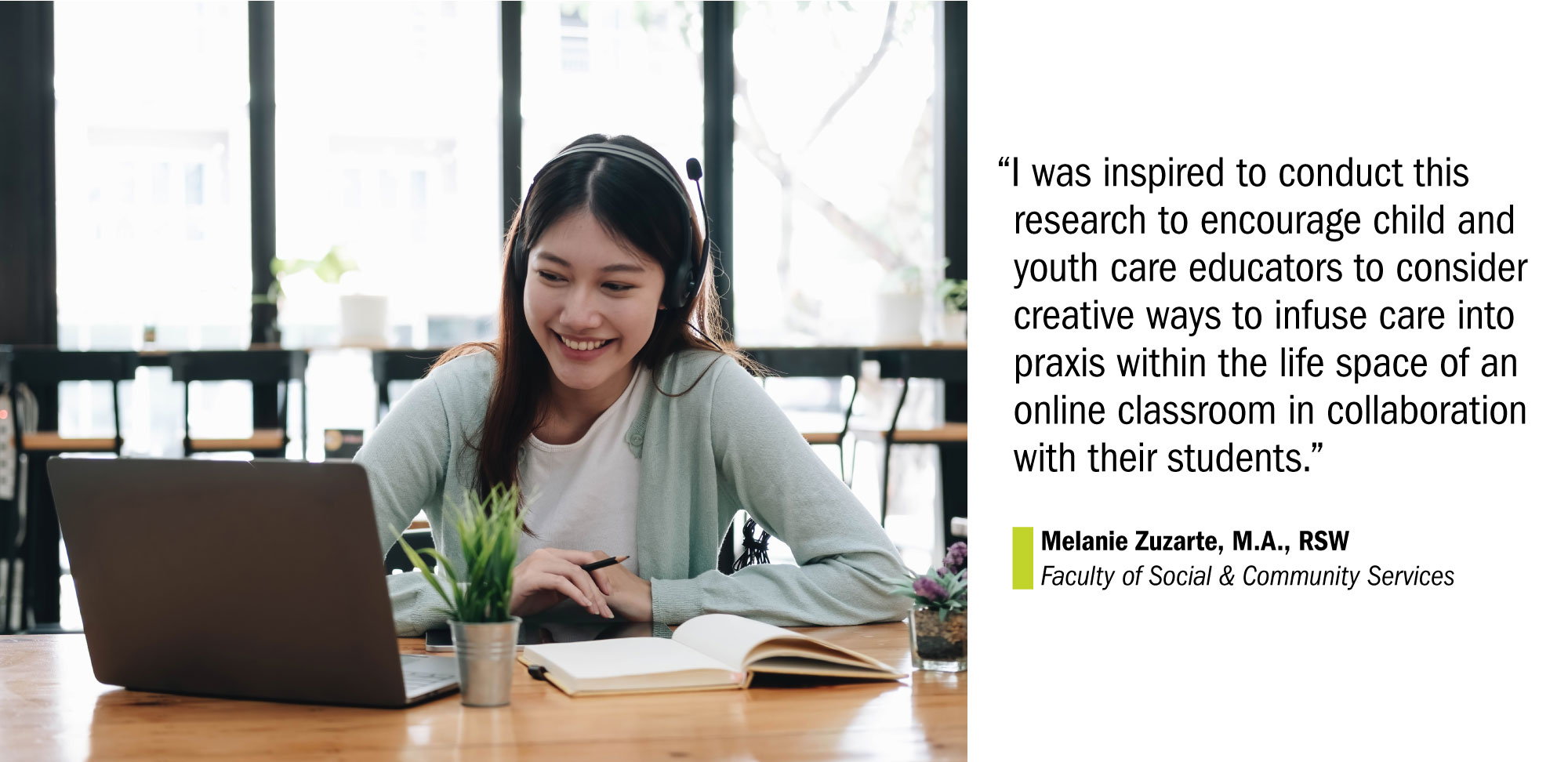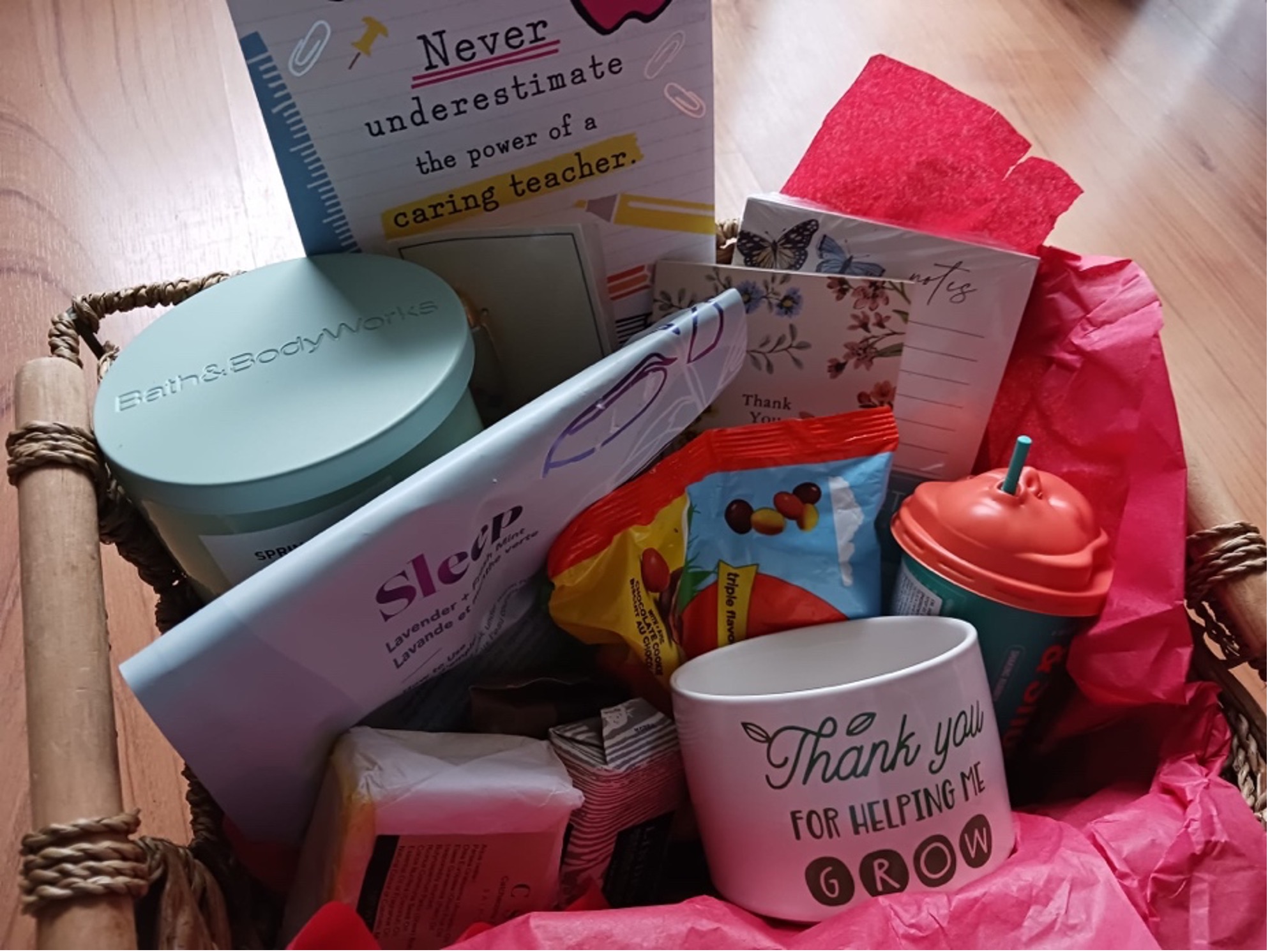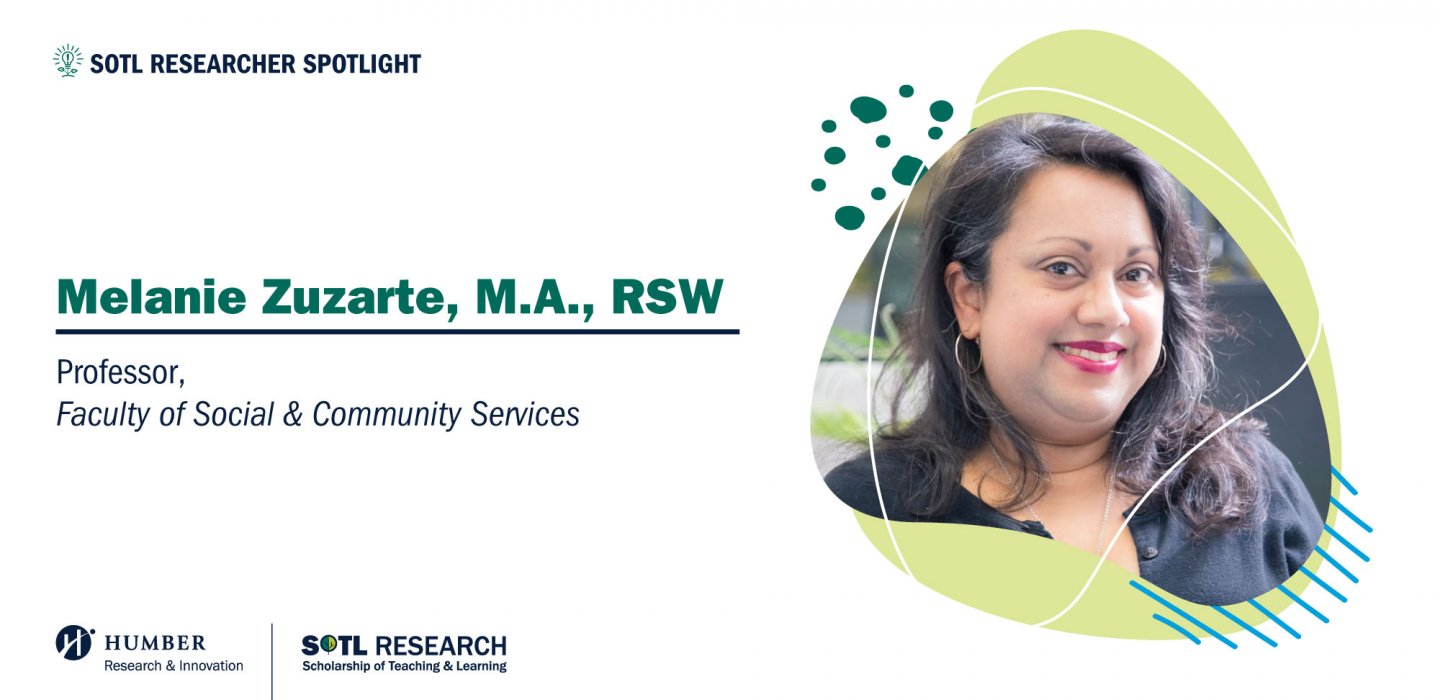For Melanie Zuzarte, M.A., RSW research is synonymous with a forward-thinking approach to reflecting and engaging in new and innovative ways of knowing, being, and doing. Her latest research project "Incorporating Praxis into Child and Youth Care Post-Secondary Education" is a testament to her outlook and approach.
Melanie holds a Master of Arts in Child and Youth Care from Toronto Metropolitan University (formerly Ryerson University). She has worked as a counsellor with a non-profit for more than two decades and holds instructor posts with Humber College’s Faculty of Social & Community Services and Toronto Metropolitan University. Her clinical and research skills have melded over the past decade whilst in practice. As a result, she was motivated to weave clinical skills — specifically narrative counselling, strength, and trauma-Informed approaches — into research to further child and youth care scholarship.
The project received the Scholarship of Teaching & Learning Seed and Cultivate grant from Humber’s Office of Research & Innovation. Since starting the research project in 2021, she has completed its Phase 1 in Spring/Summer 2022 and over the past few months, she has been working on a journal submission.
The extended version of the interview will appear in an upcoming issue of Humber’s research and innovation quarterly SPARK.
ER: Can you give us an overview of the project?
MZ: My research project is titled, “Incorporating Praxis into Child and Youth Care Post-Secondary Education.” The research project focuses on how Child and Youth Care Educators may inspire students to infuse care when engaging in praxis (theory in action) within the life-space of an online classroom.
ER: What inspired you to conduct this research?
MZ: As an able-bodied Roman Catholic woman with South Asian and Portuguese ancestry, I work within anti-oppressive, anti-colonial, and anti-racist frameworks in participation with post-secondary students. As a clinician, I weave in culturally responsive practice when engaging with Indigenous, Canadian and newcomer youth. I have curated these inclusive approaches into the pedagogy in collaboration with child and youth care students so that they are prepared to support our racialized and marginalized youth. I was inspired to conduct this research to encourage child and youth care educators to consider creative ways to infuse care into praxis within the life space of an online classroom in collaboration with their students.

ER: What has been the most gratifying and rewarding aspect of the project up to this point?
MZ: The most gratifying aspect of the project has been considering a relational approach to care which would engage with my students within an unfamiliar online life space. As a result, I discovered what it meant to support my students’ emotional, mental, physical and spiritual needs. They felt the care that I offered as a clinician and educator and felt inspired to draw upon the same elements within the online spaces they inhabit.
ER: Was there a discovery—about the process or the chosen area of focus—that surprised you?
MZ: I noted when I modelled the elements of caring relationships within my pedagogical plan, my students benefitted and soaked in the themes of trust, empathy, affirmation, availability, and respect. At the end of the semester my students gifted me a self-care basket of treats including a candle, bath salts, candy, pens, and journal paper. They noted that they were replicating the abundance of care that I brought to the classroom. They were keen to shine the same care onto me as a gesture of thanks within a personally signed card.

ER: As somebody who has successfully embarked on their first research project, what advice do you have for others who would like to become researchers?
MZ: A key piece of advice that I would like to offer is to find a gap in the research that you feel passionate about and consider that area as your starting point towards social change. There is a lot of heavy lifting at the commencement of the research process – treat this time as a treasure hunt. When you find an area of research that can benefit from your passion, optimism, and drive, your research project will not feel like work.
A key piece of advice that I would like to offer is to find a gap in the research that you feel passionate about and consider that area as your starting point towards social change.
—Melanie Zuzarte
Get to know more about Melanie:
Favourite book, podcast or movie:
My favourite series is Black Mirror and Jordan Peele’s “Twilight Zone”.
Favourite café, eatery, or restaurant:
Lake Inez
A practice, habit or a tool that helps you to research better or get into the researcher’s mindset:
I love listening to my iPod and keep it on shuffle on my daily walk.
Favourite activity to de-stress or to manage burnout:
My favourite activity to de-stress (come rain or shine) is walking between Bloor Street West to High Park with a bottle of water, some music and some change to grab some coffee and snacks on the way. I love to walk through High Park, say hello to the ducks and then hike back up the hill to Bloor Street West. It’s a great way to connect with yourself, nature, and all the neat local happenings.
SoTL Researcher Spotlight is a series of articles to shine the spotlight on Humber SoTL researchers who make positive impact on the wider community through their work. Interested in learning more about SoTL? Read this insightful article, The SoTL Effect or The SoLT Effect?
Check out the upcoming issues of SPARK to learn more about Melanie and her research project.
